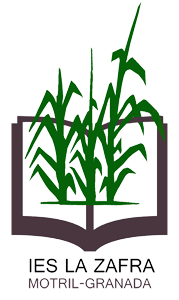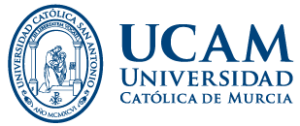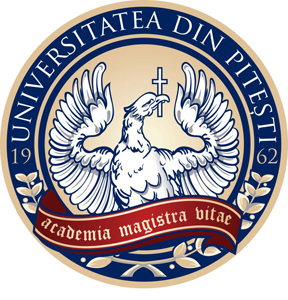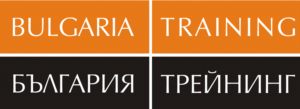Partners
The partners participating in the project are active in education, professional training, and scientific and technological research.
In different and additional fields, all organisations have realised several projects on topics in line with the priorities of the present project.
The project certainly has a strong impact in the field of education, especially on the last years of high school: thanks to the planned activities, in the long term, a change in the level of higher education is expected, which will be more oriented towards STEM subjects.
High Schools and Universities

The institute was founded in the school year 1972/73 as a branch of the Scientific High School – Liceo Scientifico- based Terni -the main town in our province- later becoming an autonomous school in 1985.
Our students chose to name it ‘Gandhi’ to testify both the value given to non-violence as an approach to teaching, learning and living in general and to the possible coexistence of models of different cultures.
Over the years, local requirements have changed the Istituto Superiore Gandhi, making it a reference point for a heterogeneous and articulated basin.
Students can enroll in one of the many branches we offer: Scientific ‘Liceo’ with Applied Sciences and Sports options, Foreign Languages ‘Liceo’ , Social Sciences ‘Liceo’, with a social- economic option, or the Technical Institute for Construction, Environment and Territory.
The wide range of courses on offer allows the Istituto Istruzione Superiore Gandhi to respond very effectively to the demands coming from the society and the world of work.
For many years, I.I.S. Gandhi has enriched its educational offer through numerous activities and complementary European projects aimed at understanding the cultural, political, legislative, social and economic conditions, rights and duties that characterise our being a European citizen.
TheI.I.S. Gandhi wants to create an open school as a permanent laboratory for research, experimentation and teaching innovation, which allows active participation and guarantees the right to education and equal opportunities for educational success to all its students.

IES LA ZAFRA is a Professional Secondary School located in Motril, on the coast of the province of Granada in Andalusia, southern Spain.
The school includes 1900 students and more than 140 teachers. It also provides adult education, in morning and afternoon classes, and online teaching for secondary and non-compulsory professional education.
LA ZAFRA is a multilingual secondary school: art, history and science are taught in English, while mathematics and music are given in French.
It offers a wide range of vocational courses: mechanics and vehicle painting, finance and
administration, logistics, work accident prevention, ambulance assistant, crèche and environmental care.
The school, a pioneer in the region, offers DUAL vocational courses, a branch that consists of mixing training with 50% theoretical lessons.
Since 2014, it has been involved in Erasmus + projects for the purposes of internationalisation, vocational training of students in European countries and implementation of the multilingual programme.

The secondary school for foreign languages “Simeon Radev” is located in Pernik, in the south of Bulgaria, a city with 85,000 inhabitants.
The school comprises 6 classes, year 8th grade, with about 730 students from different backgrounds. It is a public school of general secondary education specialised in language learning – English, German, French, Spanish and Russian – with 52 language teachers.
Students who pass the national Bulgarian and mathematics tests at the end of the seventh grade are admitted to the school.
In addition to the language specialisations, there are two classes with Software and Hardware Science profile and two classes with Tourist Guide professional profile.
Since 2012, the Simeon Radev school has been a member of the Cambridge School Association, of which it is an authorised certified centre. At the institute it is also possible to take a DSD (Deutsch Sprach Diplom) examination, which is a great advantage for our students.
Every year, our French students take various international standard certification examinations (DELF, DALF): this allows them to continue their education in French universities and in all French-speaking countries.
The American Fulbright Commission provides an ETA teaching assistant from the United States during the current school year.
The school also offers bilingual education in the following subjects thanks to mother tongue teachers: History, Chemistry and Biology in English, History, Biology and Physics in German, History and Geography in French. The mother tongue teachers also stimulate and motivate the students to participate in extracurricular activities and clubs.
In fact, the school involves 21 different clubs such as: Astronomy, English Language and Culture, Vocal-Instrumental Group, Drama Club, Spain-Traditions and Culture, Guides and Animation, Android Applications, Chemistry Lab, Journalism, Speech and Debate in English, Mathematics, Germany, Civics, Philosophy.

UCAM – Universidad Católica de Murcia is a private non-for-profit university founded in 1996 and established in Murcia (Spain) with a clear mission: providing students with knowledge and skills to serve society.
The efficacy of UCAM teaching method is mainly due to the small number of students in each class, personal tutors and dedicated trainings. UCAM education is based on the combination of in-depth theoretical and practical knowledge: this model has been recognised by the Spanish National Quality and Accreditation Agency as well as by international evaluation bodies like the European Teaching Ranking, the World University Ranking, QS and U-Multirank.
Fostering research activities is one of the University’s mission. It partakes in numerous international research projects (H2020, Marie Curie, Life or Erasmus+) and it contributes to transferring knowledge and technology to businesses and society. UCAM has established students and staff exchange programs, joint degrees, research, or other kinds of academic collaborations with more than 450 well-known international strategic partners among which several leading universities such as UC Berkeley, Stanford, NTU, NUS, or Università degli Studi di Bologna.
Counting with more than 20000 students from 90 countries, UCAM is a pole of attraction for students looking for programs in different fields ranging from Sport to Business, Legal studies, Medicine, Healthcare, Engineering, Education, and Communication. Strongly linked to the labour market, UCAM offers study courses that include internships at institutions and companies, research projects in collaboration with large regional, national, and multinational companies. In point of fact, one of the significant goal of UCAM is the increase in the employability of recent graduates: the range of students finding a job after graduation is currently around 86% in total.

EPRALIMA is a School of Higher Education founded in 1999 in the Alto Lima region of northern Portugal.
It is a private non-profit institution that provides professional training in different technical areas.
With approximately 400 students, EPRALIMA values and maximises the potential of resources by promoting equal opportunities in the community, helping to reduce school drop-out and failure rates.
EPRALIMA founds its teaching methods on ‘knowing how to do’ and ‘knowing how to be’, helping to form supportive, active and informed citizens, prepared for a new European citizenship and for the new challenges of the knowledge society.
Vocational education plays a decisive role in building the future of the individual and society: EPRALIMA responds to the educational and training needs, the expectations of young people and adults and the needs and demands of the region, enabling it to establish itself locally and provide added value to the areas in which it operates.
EPRALIMA excellently trains citizens with established ethical and moral values who are destined to succeed in their professional and private lives.
As a local development agent, Epralima standardized the conquest of the following goals:
– Placement of the juvenile and adult population pertaining to the school’s intervening area;
– Decrease the ratio of school dropouts and unsuccessfulness;
– Appreciation of endogenous potential;
– Revitalization of the social structure taking into account equal opportunities;
– Optimization of endogenous resources.
Thus, Epralima has been guiding its development according to the following strategies:
– Prepare youths and adults towards the exercise of a qualified profession;
– Develop mechanisms in which Epralima and the local economic, professional and cultural institutions and associations can create better relationships;
– Provide trainees with professional experience and contact with the labour market, preparing them for an adequate socio-economic insertion;
– Promote in conjunction with other local agents and institutions, the accomplishment of a training project for qualified human resources that responds to the developmental needs integrated in the country, particularly at the regional and local levels;
– Provide students with a general, scientific and technological training, solid enough to prepare them for the workforce and to later continue their studies, particularly through the following training modalities: vocational courses;
Specialized Technological or Artistic Courses; primary or secondary night courses; training courses at night for working individuals; programmes to support youth integration in the labour market; other professional training initiatives etc.

Founded in Pitesti in 1962 as a ‘Three-year Pedagogical Institute’ for pedagogical education in Mathematics, Physics, Biology, Chemistry, Philology and Physical and Sports Education.
Over the years, the institute evolved by associating with the Institute of Associated Engineers, the Polytechnic University of Bucharest until it became an autonomous University in 1991.
Decades of experience in technological education, study programmes, the quality of training and the excellent academic staff have attracted interest in the university from young people from all over the world, thanks also to the Romanian Language Training Centre for foreign students.
In particular, the Universitatea Nationala
is involved in undergraduate and postgraduate professional development, lifelong learning for personal development, for the integration of graduates into the labour market, and the improvement of socio-economic skills for adaptability to permanent changes.
It also promotes and builds partnerships at local, regional and national levels that contribute to the resolution of community issues.
The University of Pitesti is recognised as a provider of excellently prepared human resources for the local, national and international labour market: it offers modern education adapted to the European socio-economic environment.
Training Institutes

Bulgaria Training is a non-profit association founded in 2006 that carries out training and professional consultancy activities.
The association organizes workshops and seminars, promotes innovative activities in rural areas through a capillary territorial marketing activity.
It also provides youth mobility through the activation of on-site work placements, study visits and work meetings abroad for the exchange of experience.
Bulgaria Training deals with the preparation and development of projects within European programmes such as Erasmus + as well as transnational cooperation and networking.
The association is successfully working on projects of European Programs with Municipalities, Universities, High schools, Council of Agriculture, Ministry of Agriculture, Local Action Groups (LAG’s) and NGOs. We have participated in more than 150 projects for Internships, Transfer of Innovation, Leonardo Mobility, Exchange of good practices and intercultural exchanges.
We are partner in a big European Network for cooperation in a several field of Transnational projects related with education, vocational trainings, entrepreneurship, creativity and innovative methods for acquiring knowledge and skills. We have developed training materials for young entrepreneurs and for small companies. As a training center, we have developed various programs and tools for emotional intelligence, coaching systems for young people from rural areas and more.
Our staff is participating in projects for development of innovative tools to stimulate young entrepreneurs to creativity and to apply the principles of sustainability and environmental protection in their business initiatives.
Associated Partners

The European Platform of Women Scientists is an international non-profit organisation representing the needs, concerns, interests and aspirations of more than 12,000 women scientists in Europe and beyond.
Since its creation in 2005, more than 100 networks of women scientists and other organisations that promote women in science from 40 countries have joined the Platform, working for the promotion of equal opportunities in the research fields of all scientific disciplines and aiming to give women scientists a voice in European research policy.
Although women account for more than 50 per cent of EU students and obtain 45 per cent of EU doctorates, they occupy only 19 per cent of senior academic positions, women working in science, in decision-making positions and in the private sector, are a small number.
The European Platform of Women Scientists creates a structural link between women scientists and European and national research policy makers to achieve equal and full participation of women in science and science policy in order to safeguard European excellence and innovation in research.

The CNR’s Department of Atmospheric Pollution was established in the late 1960s by Prof. Arnaldo Liberti, a professor of Analytical Chemistry at La Sapienza University in Rome.
The mission of the Institute of Atmospheric Pollution is to develop innovative methods and new technologies to determine the concentrations of organic and inorganic pollutants in the atmosphere.
The topic of air quality and air pollution affects the world’s population as a whole and inevitably has to do with living and consumption habits, economic and production activities and, last but not least, the policies of national and international decision-makers.
The effects of air pollution are reflected in our daily lives and have significant repercussions in the future scenarios with costs that are not irrelevant in economic terms and related to people’s health and quality of life.
The Institute provides scientific advice, carries out research and monitoring activities, and contributes to the ecological transition by steering towards sustainable industrial policies and practices: it is therefore a key player in the current framework of the planet’s ecosystem balance.
At its premises, the Institute hosts excellent researchers with state-of-the-art laboratories, instrumentation and monitoring stations.
The research activities, carried out with high competence and academic precision, are at the disposal of operators in the production sector and the partners of the She Chooses STEM for the future project.
